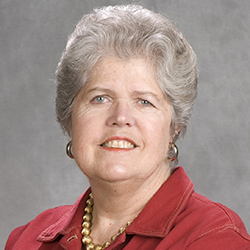
BY EMILY GILL
As of this writing, the recently leaked draft opinion of Justice Samuel Alito for the Supreme Court raises a number of issues. Here I shall consider several issues raised by it.
First, some observers argue that in the absence in most cases of the option of abortion, adoption is the perfect solution, or, as Justice Amy Coney Barrett suggested in 2021, simply leaving a baby at a legal and safe location (“safe haven”) for future adoption. The National Council for Adoption plus the Guttmacher Institute’s figures demonstrate, however, that there are many fewer adoptions than abortions. Parents often develop deep emotional bonds with their babies before and after birth.
Adoptions are emotionally fraught for both birth and adoptive parents. Adopting out a baby is complicated and often painful process. Birth parents often feel guilty, and some children end up in foster care for years. Even successfully adopted children can wonder why their birth parent(s) “abandoned” them, and this tension is hard on the adoptive parents. According to a letter to the New York Times from the adoptive mother of three, her now-adult 10-year-old daughter told her, “Face it, I’m a mistake and so are my brothers. No one gives up a baby unless they are a mistake.”
Second, with seven children, Justice Barrett herself may seem a perfect example of the argument that women can have it all — a big family and a successful professional life. No hard choices are required. But Justice Barrett and her husband are not everyone. More than anyone else, abortion restrictions or prohibitions affect poor women, who have the hardest time combining childrearing and paid work. Pregnancy discrimination still occurs, the U.S. is one of only six countries without national paid leave, and child care assistance is meager or nonexistent. According to a Princeton economist, the employment rate of women compared to men drops 20-25 percentage points on the birth of children, and women’s earnings drop 35 points.
Third, even if women were fully supported, both economically and emotionally, in their choices to rear their babies, this should be their choice. In a letter to the NYT, another adoptive mother of a now-adult child mentions that although the birth mother could have aborted, she chose adoption. “The point is she had a choice and it was one she made, not one made for her.”
In an opinion piece in the NYT, Erika Bachiochi wrote, “A post-Roe America will need to move beyond its wrongheaded obsession with autonomy … to align both its rhetoric and its policies better with the [interdependent] realities of human existence.” People are certainly interdependent in many ways. They are not, however, forced to donate blood even when this might save another, born human being. In most places now they are not forced to wear masks or to socially distance even when this would protect the health of those who are old or subject to medical conditions that foreclose COVID vaccinations. Yet some of these individuals would force women to have babies.
Finally, the availability of abortion can be life-giving, not death-dealing. I know of people with wonderful children and grandchildren who would not have allowed themselves to become pregnant at the outset without the availability of legal abortion in case of severe fetal anomalies. How many babies are born because prospective parents knew that they had choices?
Emily Gill is Caterpillar Professor of Political Science Emerita, Bradley University.
